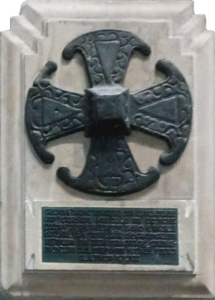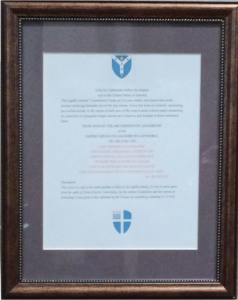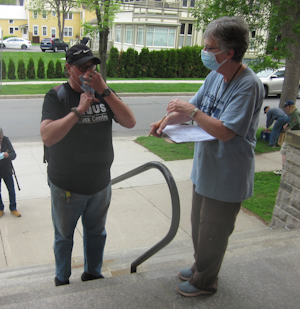Bishop and Chapter met on the evening of 17 June 2025 with 7 of 13 present. The Chapter discussed an article “Five Pitfalls of Strategic Thinking” (Susan Erdey - Episcopal Church Foundation) provided material and an opportunity for conversation pertaining to the task of strategic planning. Minutes of 20 May 2025 had been circulated and were received and approved.
FROM THE DEAN
• a summary of usual items on the Dean’s past month’s calendar
• 2 Cathedral Staff reviews completed, 2 remaining
• deacons’ annual assessment process
• video conference with Canadian Deans on 05 June
• 2 funerals, 3 committals
• expect to take vacation during August
Up-coming
• Summer Music Series
• Poetry on the Lawn
ARISING
• War memorials - from Memorial Hall have been collected by Oromocto NB Military Museum
• Advisory Committee on Appointments - B. Greenwood lead a reading of the Diocesan Guide
DECISION
• Harry Palmer bequest - remaining $12,298 be internally restricted for Christian formation/education and be moved to investment
• Banking - move operating accounts and VISAs to Omnista Credit Union, conditional on application process
REPORTS
Treasurer - May financials: Revenue $60,743 (all sources). Expense $67,095. Offering is behind its budget -$38,912 to date. Celtic Spirituality event income $5,205, $2,702 required and applied from Palmer bequest
Nominating - leadership vacancies: stewardship, safe church officer, addition member of Chapter to Nominating
Administration and Finance - summer tour guide interviews complete with hiring pending reference checks
Christian Formation - brief reports on Art and Faith, Poetry on the Lawn, Godly Play, Thy Kingdom Come, and Celtic Spirituality event. Consideration re resiliency of programming
Health / Pastoral Care - First Aid training on 03 October and if interested contact J. Hand or the Office. Blood pressure clinic held 25 May
Mission / Outreach - Monday outreach guests in May - 73, continuing to express appreciation to A. Deveau and D. Milander and others for their dedication to that programme. Belize Mission information session following 10:30 a.m. worship 22 June. 1 benevolence request processed
Property - meeting with PhD student researching heritage buildings using new 3D measurement technology with our agreement to be involved at no cost. Active items on agenda: Cathedral driveway, south choir room steps, sprinkler maintenance completed, residual invoices paid re Cathedral boiler replacement, south aisle light switch installed at west door. Pointing and roofing deficiencies discovered in April and determining the scope of repair possible continue to be a concern
Welcome and Hospitality - work continues on new member materials; invitations to worship refreshment teams; meeting of worship greeters 12 June with procedure review and discussion;
Fredericton Cathedral Foundation - progress is slow awaiting extent of participation by the City of Fredericton
UPCOMING
Bishop and Chapter: 16 September 2025 GMH
 Gifts for Cathedrals within the Empire
Gifts for Cathedrals within the Empire





